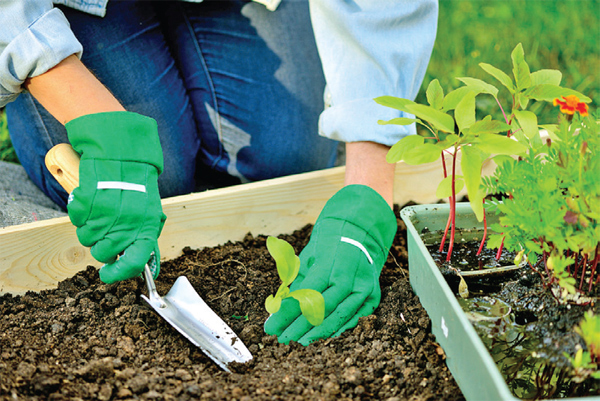Organic gardening is becoming increasingly important due to studies showing that inorganic farming techniques can be harmful to our health. It is a technique that does not use fertilizers or pesticides, and involves introducing specific insects to protect crops. Additionally, farmers and gardeners are encouraged to rotate their crops every few months to maintain nutrient levels. Organic gardening is often referred to as a holistic approach. Organic gardening involves crop rotation, compost, manure, and cover cropping, as well as environmentally friendly processed fertilizers such as seed meal and other mineral powders.
The US government has designated the US Department of Agriculture to oversee the development of organic gardening standards, and the International Federation of Organic Agriculture (IFOAM) is the governing body for organic gardening. Organic gardening is labor intensive, but is effective during droughts because the crops do not require a lot of water to grow, and because no fertilizers or pesticides are used, there are fewer nitrates and more nutrient qualities in the soil. Organic product demand is expected to rise in the future due to food safety issues and environmental concerns. There is a wealth of organic gardening information available to help beginners get started.
Organic foods are more important now than ever before. This is after numerous studies have shown that inorganic farming techniques which have been used in the past are harmful to our health. To give you some ideas, here is some organic gardening information you should be aware of.
Having healthy soil is the basic foundation of organic gardening. There are three kinds: clay, sandy, and silt. Each has advantages and disadvantages, but clay soil appears to be the best to have because it can retain water, especially during droughts, allowing plants to survive.
Furthermore, organic gardening is a technique that does not use fertilizers or pesticides. Nature does the majority of the work, and by using an organic pest management system, you can protect your crops from insects that used to threaten the field.
A system like this could imply introducing specific insects to protect your crops. You can also use livestock, birds, and toads to do the same thing, or you can plant some of them as a natural insecticide.
Farmers and gardeners are encouraged to rotate their crops in order to keep the soil fertile. This simply means planting a new vegetable or fruit every few months to maintain nutrient levels.
Because different methods are used, organic gardening is often referred to as a holistic approach. Aside from crop rotation, which was just mentioned, you can also achieve this by using compost, manure, and cover cropping.
Some farmers may also use environmentally friendly processed fertilizers such as seed meal and other mineral powders such as rock phosphate and greensand, which is a natural form of potash.
The US government designated the US Department of Agriculture to oversee the development of organic gardening standards. This is similar to what the European Commission has been doing since 1991, and it has been very successful because many of their products are imported into the United States.
The International Federation of Organic Agriculture, or IFOAM, is the governing body for organic gardening and has been in operation since 1972.
Although organic gardening is labor intensive, it produces lower yields but is extremely effective during droughts. This is because the crops do not require a lot of water to grow, so there is a steady supply that will be harvested.
Because no fertilizers or pesticides are used, there are fewer nitrates and more nutrient qualities in the soil, particularly a higher concentration of flavanoids, an important antioxidant.
Organic product demand will continue to rise in the future. This is because people are becoming more aware of food safety issues and are concerned about the environment.
If you do some internet research, you will discover that there is a wealth of organic gardening information available to help you get started if you want to grow fruits and vegetables in your own garden.
Armed with the proper tools, you will be able to understand how to work the soil, which plants are best to plant based on your location and season, and how to care for them until harvest time.
This just goes to show that a little organic gardening knowledge can go a long way.


















0 komentar:
Posting Komentar